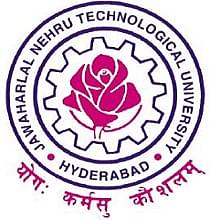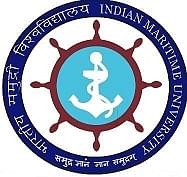Introduction about Ph. D in Agronomy
PhD in Agronomy from top college is an advanced academic program focused on the study of crop production and soil management. Agronomy is a branch of agricultural science that deals with the efficient and sustainable production of food, fuel, fibre , and other crops. This field integrates principles from various disciplines including biology, chemistry, ecology, earth science, and genetics to enhance agricultural productivity and sustainability.
Key Aspects
of a PhD in Agronomy
Research-Oriented Program:
A PhD in Agronomy is heavily research-focused, aimed at
generating new knowledge and technologies to improve crop production systems
and soil management practices.
Interdisciplinary Approach:
The program incorporates elements from multiple scientific
disciplines, allowing students to approach agricultural problems from a
holistic perspective.
Specialization Areas:
Students can specialize in areas such as crop physiology,
soil fertility, pest management, sustainable agriculture, plant breeding, and
biotechnology.
Advanced Coursework:
Coursework typically includes advanced topics in plant
science, soil science, agroecology, crop genetics, and statistical methods in
agricultural research.
Field and Laboratory Work:
Extensive field and laboratory work are integral parts of
the program, enabling students to gain hands-on experience in conducting
experiments and collecting data.
Dissertation:
The culmination of the PhD program is a dissertation based
on original research. This involves identifying a significant research
question, conducting experiments, analyzing data, and presenting findings.
Professional Development:
The program often includes opportunities for teaching,
attending conferences, publishing research, and engaging in professional
networking.
Objectives
of a PhD in Agronomy
Innovation in Agriculture:
To develop innovative practices and technologies that
enhance agricultural productivity and sustainability.
Problem Solving:
To address critical challenges in agriculture such as
climate change, soil degradation, water scarcity, and pest pressures.
Knowledge Advancement:
To contribute to the scientific body of knowledge in
agronomy and related fields.
Leadership Preparation:
To prepare students for leadership roles in academia,
industry, government, and non-profit organizations focused on agriculture and
environmental sustainability.
Career
Opportunities
Graduates with a PhD in Agronomy
have diverse career opportunities, including:
Academia:
Faculty positions at universities and colleges, where they
can teach and conduct research.
Research Institutions:
Research scientist positions in government agencies, private
research organizations, and international agricultural research centers.
Agricultural Industry:
Roles in agribusiness companies, seed and agrochemical
companies, and biotechnology firms.
Government and Policy:
Positions in government agencies that develop and implement
agricultural policies and programs.
Non-Profit Sector:
Opportunities in NGOs and international organizations
working on agricultural development and sustainability projects.
Admission
Requirements
Admission to a PhD program in
Agronomy typically requires:
A Master’s degree in Agronomy, Agriculture, Biology, or a
related field.
Strong academic record and research experience.
GRE scores (if required by the institution).
Letters of recommendation.
Statement of purpose outlining research interests and career
goals.
English proficiency test scores (for international
applicants).
Overall, a PhD in Agronomy equips
students with the knowledge, skills, and experience needed to contribute
significantly to the field of agricultural science and address the global
challenges of food security and sustainable farming practices.
What is
eligibility for Ph. D in Agronomy?
Eligibility for PhD in Agronomy varies by institution, but generally includes several key requirements:
Educational
Background
Master’s Degree:
Most programs require a Master's degree in Agronomy,
Agriculture, Plant Science, Soil Science, Biology, or a closely related field.
Some programs might accept students with a Bachelor’s degree if they have
exceptional academic records and relevant research experience.
Relevant Coursework:
Prior coursework in subjects related to agronomy such as
crop science, soil science, plant physiology, genetics, and statistics is often
required.
Academic
Performance
GPA:
A strong academic record is essential, typically with a
minimum GPA requirement (commonly around 3.0 on a 4.0 scale). Some institutions
might have higher GPA requirements.
Research
Experience
Research Background:
Demonstrated research experience in agronomy or related
fields through projects, thesis work, publications, or relevant professional
experience is highly valued.
Standardized
Test Scores
GRE:
Some programs require GRE (Graduate Record Examination)
scores, though this requirement is becoming less common. Specific subject tests
may also be required by some institutions.
Letters of
Recommendation
References:
Usually, 2-3 letters of recommendation from academic or
professional references who can attest to the candidate’s qualifications and
potential for research are required.
Statement of
Purpose
Research Interests:
A detailed statement outlining the candidate’s research
interests, career goals, and reasons for pursuing a PhD in Agronomy is
essential. This helps the admissions committee assess the applicant's alignment
with the program’s focus areas and faculty expertise.
Interview
Interview:
Some programs may require an interview, either in-person or
online, as part of the selection process. This allows the faculty to assess the
candidate’s research interests, motivation, and fit for the program.
English
Proficiency
TOEFL/IELTS:
For international students, proof of English proficiency
through tests like TOEFL or IELTS is often required.
Application
Materials
Transcripts:
Official transcripts from all post-secondary institutions
attended.
Resume/CV:
A current resume or curriculum vitae detailing academic and
professional background.
Additional Documents:
Any other materials specified by the program, such as
writing samples, research proposals, or portfolios.
Specific
Requirements
Institutional Requirements:
Each university may have specific additional requirements or
variations in these criteria, so it’s essential to check the specific
requirements of the programs to which you are applying.
Example
Checklist for PhD in Agronomy Application
Master’s degree in a relevant field (or exceptional
Bachelor’s degree)
Strong GPA (usually 3.0 or higher)
Research experience and relevant coursework
GRE scores (if required)
Letters of recommendation (2-3)
Statement of purpose
Interview (if required)
Proof of English proficiency (for international students)
Official transcripts
Resume/CV
By meeting these requirements,
candidates can strengthen their applications and improve their chances of being
admitted to a PhD program in Agronomy.
What is
admission process for Ph. D in Agronomy ?
The admission process for PhD in Agronomy typically involves several steps, each designed to assess the candidate's academic qualifications, research potential, and fit for the program. Here's a detailed overview of the typical admission process:
1. Research
Programs and Identify Potential Advisors
Explore Programs:
Research universities and their PhD programs in Agronomy to
find those that align with your research interests.
Identify Advisors:
Identify potential faculty advisors whose research interests
match yours. Reach out to them to discuss potential research projects and
confirm their availability to supervise new students.
2. Prepare
Application Materials
Academic Transcripts:
Collect official transcripts from all post-secondary
institutions attended.
Letters of Recommendation:
Request 2-3 letters of recommendation from professors or
professionals who can speak to your academic abilities and research potential.
Statement of Purpose:
Write a statement of purpose outlining your research
interests, career goals, and reasons for pursuing a PhD in Agronomy. Mention
specific faculty members you wish to work with and why.
Resume/CV:
Update your resume or CV to include relevant academic,
research, and professional experiences.
Standardized Test Scores:
If required, arrange to take the GRE and have your scores
sent to the universities you are applying to.
English Proficiency Test Scores:
For international students, take the TOEFL or IELTS and
submit your scores as required.
3. Complete
the Application Form
Online Application:
Complete the online application form for each university.
Ensure all required fields are filled out accurately.
Application Fee:
Pay the application fee for each program. Fee waivers may be
available for eligible candidates.
4. Submit
Application
Submit Materials:
Upload or send all required documents, including
transcripts, letters of recommendation, statement of purpose, resume/CV, and
test scores by the application deadline.
Tracking:
Keep track of application deadlines and confirm that all
materials have been received by the university.
5. Interview
(if required)
Interview:
Some programs may require an interview, which can be
conducted in-person, over the phone, or via video conference. Prepare to
discuss your research interests, background, and why you are interested in that
particular program.
6. Await
Admission Decision
Review Process:
The admissions committee will review your application
materials. This process may take several weeks to months.
Notification:
You will receive notification of the admission decision via
email or the application portal. This could include an offer of admission,
placement on a waitlist, or a rejection.
7. Accept
Admission Offer
Decision:
If you receive an offer of admission, review the details,
including any funding or assistantship offers.
Acceptance:
Accept the offer by the specified deadline and follow any
additional instructions provided by the university.
8. Prepare
for Enrollment
Funding and Housing:
Arrange for funding (e.g., scholarships, assistantships) and
secure housing if needed.
Visa (for international students):
Apply for a student visa once you receive the necessary
documentation from the university.
Orientation:
Attend orientation sessions and meet with your advisor to
plan your course of study and research.
Summary
Checklist
Research programs and identify potential advisors.
Prepare application materials: transcripts, letters of
recommendation, statement of purpose, resume/CV, test scores.
Complete and submit online application forms.
Pay application fees.
Participate in interviews (if required).
Await admission decisions.
Accept the offer of admission.
Prepare for enrollment, including securing funding and
housing, and obtaining a student visa (for international students).
By following these steps, you can
navigate the admission process for a PhD in Agronomy effectively.
What is
syllabus for Ph. D in Agronomy ?
The syllabus for PhD in Agronomy typically includes a combination of advanced coursework, research, seminars, and dissertation work. The specific courses and requirements may vary by institution, but generally, the program covers the following areas :
Core
Coursework
Advanced Crop Science:
Topics include crop physiology, development, and management.
Emphasis on understanding crop responses to environmental
conditions and management practices.
Soil Science:
Soil chemistry, fertility, and microbiology.
Soil-plant relationships and sustainable soil management
practices.
Plant Genetics and Breeding:
Principles of genetics and breeding techniques for crop
improvement.
Molecular breeding, biotechnology, and genetic resources
conservation.
Agroecology:
Ecological principles applied to agricultural systems.
Biodiversity, ecosystem services, and sustainable farming
practices.
Integrated Pest Management (IPM):
Strategies for managing pests, diseases, and weeds.
Biological control, chemical control, and cultural
practices.
Research Methods and Experimental Design:
Advanced statistical methods and experimental design in
agricultural research.
Data analysis and interpretation.
Climate Change and Agriculture:
Impact of climate change on agricultural systems.
Adaptation and mitigation strategies for sustainable
agriculture.
Specialized
Electives
Students may choose electives based
on their research interests. Examples include:
Precision Agriculture:
Technologies and techniques for precision farming.
Use of GIS, remote sensing, and data analytics in
agriculture.
Water Management and Irrigation:
Efficient use of water resources in agriculture.
Irrigation systems, water conservation, and drought
management.
Agricultural Policy and Economics:
Economic principles and policies affecting agriculture.
Market analysis, trade, and agricultural development.
Organic and Sustainable Agriculture:
Principles and practices of organic farming.
Certification, marketing, and sustainability assessments.
Research
Components
Research Proposal Development:
Writing and defending a research proposal.
Comprehensive literature review on the chosen research
topic.
Laboratory and Field Research:
Hands-on experience in conducting experiments, collecting
data, and analyzing results.
Field trials, greenhouse experiments, and laboratory
analysis.
Dissertation
Original Research:
Conducting original research under the guidance of a faculty
advisor.
Regular progress reports and meetings with the dissertation
committee.
Dissertation Writing:
Writing the dissertation, including introduction, methods,
results, discussion, and conclusion.
Adherence to institutional guidelines and standards for
dissertation format.
Dissertation Defense:
Public defense of the dissertation research.
Presentation of research findings and answering questions
from the dissertation committee and audience.
Seminars and
Workshops
Departmental Seminars:
Participation in seminars and workshops organized by the
department.
Presenting research findings to peers and faculty.
Conferences:
Attending and presenting at national and international
conferences.
Networking with other researchers and professionals in the
field.
Teaching and
Outreach
Teaching Assistantships:
Opportunities to assist in teaching undergraduate courses.
Gaining experience in curriculum development, lecturing, and
student assessment.
Extension and Outreach Activities:
Engaging with farmers, industry professionals, and the
public to disseminate research findings.
Participation in extension programs and community outreach
initiatives.
Comprehensive
Examinations
Written and/or Oral Exams:
Comprehensive exams covering core and specialized knowledge
in agronomy.
Assessment of the student's mastery of the subject matter
and readiness for independent research.
Example
Schedule
Year 1:
Core coursework and electives.
Development of research proposal.
Begin literature review.
Year 2:
Advanced coursework and specialized electives.
Conduct preliminary research.
Comprehensive examinations.
Year 3:
Focus on dissertation research.
Data collection and analysis.
Regular progress meetings with the dissertation committee.
Year 4:
Complete dissertation research.
Writing and revising the dissertation.
Public defence of the dissertation.
Each PhD program may have its unique
requirements and structure, so it’s important to refer to the specific program
guidelines at the institution you are attending.












